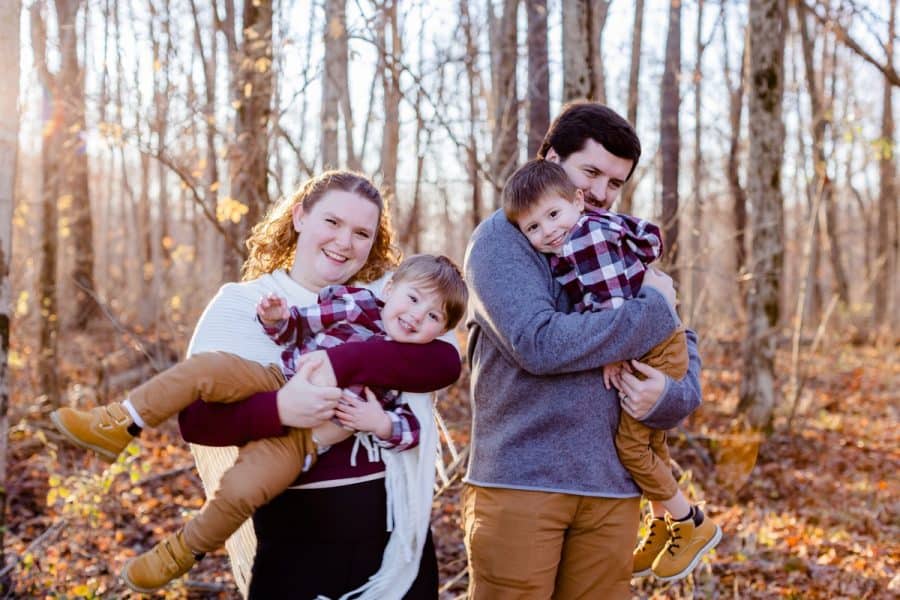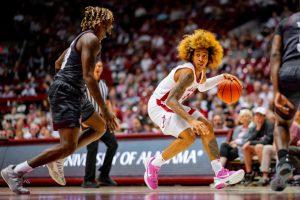‘Positively optimistic’: People reflect and look ahead after a year with COVID-19
COVID-19 has reigned over the U.S. for little more than a year. But its effects will likely cast a long shadow.
April 14, 2021
After being thrown into quarantine to stop the spread of COVID-19 in March 2020, the unemployment rate soared to 14.7%, a rate that hasn’t been seen since the Great Depression. Students fell behind in virtual and online classes, and one-third of those who contracted the virus reported long-term effects.
The COVID-19 pandemic has changed the world as we know it. From the families and friends grieving the more than 500,000 deaths to parents worrying about their children’s futures, people everywhere will have to grapple with the effects of COVID-19 long after it’s gone.
COVID-19 & the University
In March, almost 38,000 UA students were forced off campus to complete the spring semester virtually. Though many students came back to Tuscaloosa for the fall semester, many classes and clubs were held completely online.
According to the UA System website, approximately 3,000 students contracted COVID-19 in 2020 and more than 800 did in 2021.
Grace Bruner, a sophomore elementary education major, tried her best to stay COVID-19 safe when the pandemic came to the U.S. around March last year. With her father still working well into quarantine and a sister who was more susceptible to health complications due to diabetes, Bruner said the pandemic was incredibly hard for her and her family to navigate.
When school started back, however, Bruner was faced with even more difficulties stemming from the COVID-19 pandemic. As an elementary education major, Bruner said she missed out on a lot of training and education because she couldn’t go into schools to teach.
On top of missing out on a lot of her education, Bruner also said COVID-19 has isolated her in ways that took a huge toll on her mental health.
“With COVID and online classes, I just wasn’t feeling like myself,” Bruner said. “It did take a little toll on my mental health just being stuck inside, being a little depressed.”
Katherine Chiou, an assistant professor of archaeology at UA, said the pandemic drastically affected her research and fieldwork, particularly because she couldn’t travel.
In March, UA suspended all University-sponsored international travel to countries that were highly affected by COVID, including Italy, China and many more. Chiou said the pandemic also drastically changed her classroom when she came back to campus in the fall of 2020.
Professors were forced to make difficult decisions about their classrooms before the fall semester. Smaller classes were able to remain in person with six feet between students and lecturers and masks worn at all times.
Other classes were completely online, with lectures posted on video-streaming service Panopto, Zoom or Blackboard. Hybrid classes were a mixture of in-person and online on Zoom, though many students and professors agree that Zoom isn’t the same as actually being in class.
“I think I personally struggled a lot with trying to make sure that there was a sense of community within the classroom,” Chiou said. “I have a lot of freshmen, for example, and I think it was difficult for them to have their first semester be defined like that. A lot of people were struggling in terms of their mental health and feeling very isolated and very alone. And I just noticed that grades slipped overall, compared to previous years. So as an instructor that really worries me quite a bit. I felt like morale overall was somewhat low.”
COVID-19 & Mental Health
Beyond a one-time dip in morale, the pandemic had expansive effects on student mental health.
In a study done by Active Minds, 80% of college students in the U.S. have felt that COVID-19 has negatively impacted their health. 91% of students claimed that COVID-19 caused more stress and anxiety. 81% felt disappointment or sadness, and 80% felt lonely or isolated.
B.J. Guenther, a staff therapist at the Counseling Center, said the center had to update their patient intake forms to include mental health distress stemming from COVID-19 after more students came to their office to deal with COVID-19-related mental health problems.
“If their mental health is being affected by COVID-19… they may become depressed due to the isolation,” Guenther said. “They may become lonely or they may start to not be able to concentrate in school. …It’s a lot of burnout. If your mental health is not good, that’s going to impact your grades, and that kind of starts a vicious cycle.”
While COVID-19 has greatly affected the classroom and educational experience for both faculty and students, it also presented the unique opportunity for many to take a step back and reevaluate their lives and their futures.
“During quarantining, I definitely took the time to look at myself,” Bruner said. “I didn’t do it in a bad way but I definitely was like, ‘Okay, you could take this time to better your mental health, your physical health, your emotional health and your spiritual health.’”
COVID-19 & Entrepreneurs
COVID-19 has forced a lot of people to make changes to their life that they never considered before.
According to a Pew Research study, 66% of unemployed Americans have seriously considered changing their occupation or field of work during the pandemic. Others have opened entirely new businesses in order to finally make their dreams a reality.
Kayla Earnest, a Northport-based entrepreneur, was leaving for spring break early last March when she saw an opportunity to mentor under a well-known wedding photographer.
Earnest, who had been working as a dog groomer previously, had always loved photography and she knew right away that she wanted to apply for the mentorship.
So in the midst of the pandemic, Earnest started her photography business, Earnest Moments Photography, out of her home in Northport while raising her two young sons. Her photography business often works with UA graduates and students to capture special moments as they get ready to leave campus.
To make ends meet, Earnest also works at Crunch Fitness, where she spends her time listening to podcasts and radio shows that help her learn more about photography and running a business. At night after her kids go to bed, she edits photos and plans future photography sessions.
Though Earnest’s new business has been exciting for her and her family, she said she still struggles with mental health issues stemming from the pandemic.
“I had anxiety and depression already, but [COVID-19] is like that storm where you come in, and you can’t leave the house because you’re snowed in, and everything that happens hits lower,” Earnest said. “Everything hits harder. But for me, photography has been fantastic. …I don’t have to be right in your face to take the picture. I can basically work with people and be comfortable and I am able to do a lot of studio work from my own house.”
Earnest said her COVID-19 quarantine experience has brought her family closer together.
Her husband, who works in finance, helps her with the monetary side of her business. Her oldest son loves being able to go to photography sessions with her when he can, even going as far as to help her clients pose.
COVID-19 & the Future
While the pandemic has been a discouraging time for most Americans, the widespread use of the vaccine is making many more hopeful than they have been in over a year. Despite the issues that COVID-19 has brought about, 79% of college students are feeling hopeful about achieving their educational and career goals.
Myron Pope, UA vice president of student life, said he’s optimistic for the upcoming fall semester, particularly because he hopes most students will get the vaccine this summer.
In the state of Alabama, almost 2 million vaccines have been administered, which makes approximately 18% of Alabama adults vaccinated. Currently, anyone who is 16 years of age or older is eligible to receive the vaccine.
Though college students are now eligible to receive the vaccine in Alabama, the University only has a limited supply of vaccines to give to students. Student workers are currently the only students invited to be vaccinated by the University. However, the University hopes to receive more shipments in order to vaccinate the entire student population.
Pope said he hopes students armed with immunization will find ways to become engaged next year, which will include several opportunities presented by the Division of Student Life that will resemble Get On Board Day.
“I’m positively optimistic about our ability to come back to full operations and allow the students to engage at a normal level that we’ve expected in the past,” Pope said. “We have been able to keep everyone safe during this time and hopefully, with the vaccine, everyone will get the chance to take it this summer. Coming back in the fall, we hope to go back to normal operations and allow students to engage with one another.”





















